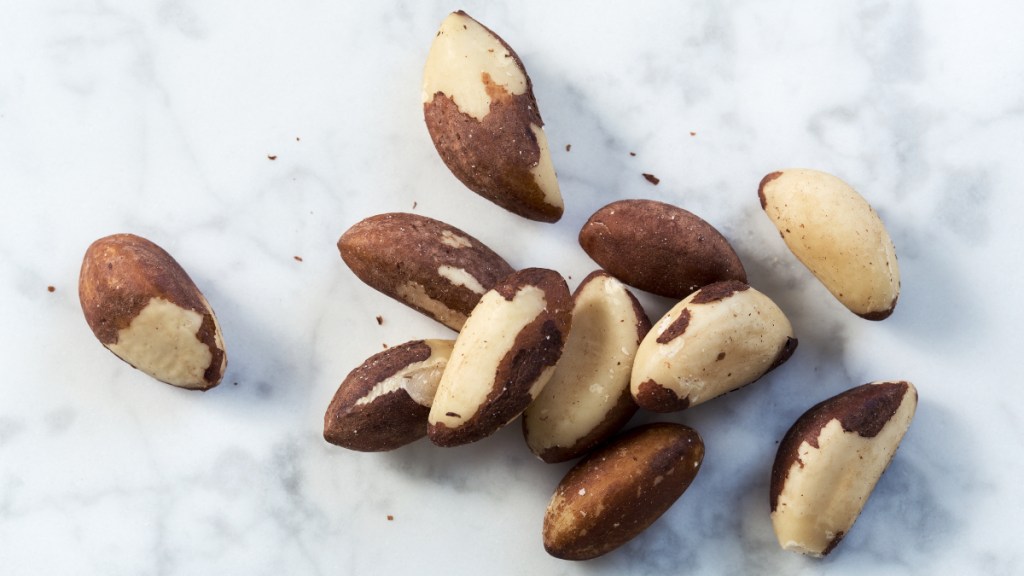Experts Say This Ancient Herb Can Help Rejuvenate a Weary Thyroid — And Your Energy
Plus find out the sneaky spot thyroid-disrupting compounds may be hiding in your home

Chances are, ashwagandha may already be on your radar for its powerful health benefits. This ancient herb has been a staple in Ayurvedic medicine for thousands of years, and it’s been surging in popularity recently. The reason? It can help you sleep better, lose weight and cope with stressful situations more effectively. Add one more benefit to that list: If a sluggish thyroid has you feeling fatigued, taking ashwagandha for thyroid health might be the key to getting your energy back. Here, we break down what can cause your thyroid to falter and how ashwagandha (plus other expert-back tricks!) can help renew your vim and vigor.
What causes a sluggish thyroid?
Thy thyroid is a butterfly-shaped gland at the front of your throat that plays a key role in the way your body uses energy. Your thyroid produces hormones that help to regulate your mood, metabolism, body temperature, heart rate and more.

But when your thyroid slows down — a condition called hypothyroidism — everything slows down. Symptoms of hypothyroidism may include fatigue, weight gain, constipation, thinning hair, dry skin, changes in heart rate, feeling cold all the time or irregular menstrual cycles. (Click through to learn how dents and brittle nails can be a sign of a slow thyroid, too.)
The most common cause for an underactive thyroid is Hashimoto’s disease, a condition in which the immune system attacks the thyroid. Thyroid function can also be impacted by factors like inflammation, medications, certain nutrient deficiencies or radiation treatment. Women are at a higher risk than men, and the risk of thyroid slowdown increases dramatically as we get older.
“As women age, hormonal fluctuations and changes in their bodies can impact thyroid function,” says Michelle Routhenstein, RDN and Preventive Cardiology Dietitian at Entirely Nourished. “These changes often coincide with menopause, which typically occurs around the age of 50. Menopause involves a significant decrease in estrogen levels, which can affect the thyroid gland’s activity, potentially leading to an underactive thyroid.” (Click through to learn how treating thyroid trouble may help stop someone from snoring.)
Ashwagandha thyroid benefits
Worried your thyroid may be slowing down? Consider adding ashwagandha for thyroid support to your supplement routine. Along with all its other health benefits, ashwagandha is an adaptogenic herb that can help to nourish and revitalize a weary thyroid.
In a study in the Journal of Alternative and Complementary Medicine, people were given 600 mg of ashwagandha root extract daily. After 8 weeks, researchers found that ashwagandha was more effective than a placebo at normalizing thyroid hormone levels. And a recent review of studies noted that ashwagandha could boost thyroid function and benefit the endocrine system by lowering levels of the stress hormone cortisol. (Click through for more supplements that reduce cortisol.)
“Very early research shows that ashwagandha may help balance thyroid hormones by reducing levels of stress and cortisol in your body, although this relationship needs to be studied further,” adds Chrissy Arsenault, RDN, a registered dietitian at Kori Krill Oil.
How to use ashwagandha for thyroid support
While the above study found ashwagandha thyroid benefits when taking 600 mg daily for 8 weeks, other studies found stress-relieving benefits of ashwagandha at lower doses. One study in Medicine noted that participants had lower cortisol levels when taking 240 mg of ashwagandha, also known as winter cherry, daily for 60 days.

Bottom line: Research is still a bit limited, so talk to your healthcare provider to determine how much ashwagandha will be a safe and effective dosage for you. In terms of using ashwagandha for thyroid support, consider a supplement such as Nature’s Craft Thyroid Complex, which combines 200 mg of ashwagandha with other thyroid-boosting vitamins and minerals such as iodine and selenium (Buy it on Amazon, $17.77).
Who should avoid ashwagndha for thyroid?
Keep in mind ashwagandha isn’t ideal for everyone. “Patients with autoimmune thyroiditis may not benefit from using this herb,” says Amanda Alexander, ND, a naturopathic physician who practices primary care in Tempe, AZ, with a focus in hormone balancing. Because ashwagandha boosts the immune system, it may potentially have negative effects for someone with an autoimmune condition. “It should also be avoided by patients who are pregnant or who have hyperthyroidism, or overactive thyroid,” Dr. Alexander adds.
7 more ways to revive a sluggish thyroid
If you’re feeling drained and bogged down, classic signs of a worn-out thyroid, here are 7 more ways to give the hardworking gland a boost.
1. Start your day with aloe vera
When a sluggish thyroid is zapping your energy, coffee might seem like the obvious choice to kick-start your day. But research suggests aloe vera may be a more beneficial pick. In one study, researchers found that sipping 50 milliliters of aloe vera juice (around 1.5 oz) each morning on an empty stomach helped to restore thyroid function in every participant. And they started seeing results after just three months. Experts say the antioxidant and anti-inflammatory properties of aloe may benefit people whose sluggish thyroid is caused by autoimmune issues. (Click through to learn how drinking aloe vera can get rid of heartburn, too.)
2. Go nuts
“Selenium, vital for thyroid function, aids in the conversion of inactive to active thyroid hormones — crucial for women’s health, especially during menopause,” Routhenstein says. “Foods such as Brazil nuts, sardines and halibut are rich sources of selenium that can be beneficial for thyroid and overall health during this stage of life.” Adults should aim to get 55 mcg of selenium each day. Ordering sushi? Spring for yellowfin tuna. A 3-oz serving provides 92 mcg of selenium — almost double your daily needs.

3. Take a walk after lunch
“Lack of vitamin D may contribute to lower levels of thyroid stimulating hormone,” Arsenault says. However, it can be difficult to get enough vitamin D through diet alone. Fatty fish like salmon and trout are rich in vitamin D, but other sources — like cod liver oil and beef liver — probably aren’t in your weekly meal plan. Even fortified cereals only provide about 10% of your recommended daily intake.
The good news? Your body can synthesize vitamin D when your skin is exposed to ultraviolet rays from the sun. Experts recommend supplementing with up to 2,000 IU of vitamin D daily and also spending 15 minutes outdoors in the midday sun. Increase that time goal to 25 minutes if you’re wearing SPF, bundled up for winter or darker-skinned.
4. Try tai chi
Stress hormones can mess with your thyroid, but keeping a lid on anxiety can help. “Cortisol can suppress thyroid function,” Dr. Alexander says. “In individuals who don’t manage stress well, the thyroid can be negatively impacted by chronically elevated levels of cortisol.” This is one of the main ashwagandha thyroid benefits — the herb is well known for its stress-relieving effects.
To help get a handle on stress, Arsenault recommends tai chi, a series of slow, gentle movements that have been shown to reduce anxiety and boost mental health. “One of the best aspects of tai chi is that you don’t need any equipment to get started,” Arsenault says. “Play some relaxing meditation music in the background or enjoy the silence, and find a space where you’ll be left undisturbed.” Then cue up a beginner-friendly YouTube lesson like the one below.
5. Snack on seaweed
“Iodine deficiency is a significant cause of thyroid issues,” Routhenstein says. “Thyroid hormones rely crucially on iodine, and insufficient levels of this mineral can result in thyroid dysfunction.” Snacking on seaweed can help you get enough iodine in your diet each day. Just 2 Tbs. of dried seaweed deliver 77% of your recommended daily intake. Not a fan of seaweed? Cod, oysters and Greek yogurt are also great sources. Or swap out sea salt for iodized table salt at your next meal. A mere 1/4 tsp. of iodized salt has half the iodine you need in a day.
Related: “I Healed My Slow Thyroid With Sea Kelp — Now I Feel Better Than Ever!”
6. Banish dust bunnies
Believe it or not, pesky dust bunnies could be to blame for a sluggish thyroid. Research suggests house dust may contain endocrine-disrupting compounds that interfere with thyroid hormones. While you’re in cleaning mode, take the time to put away the pile of mail in the kitchen, tangled charging cables on your desk or the laundry pile on your bed. De-cluttering your home and workspace can help to relieve stress, Dr. Alexander says, which can boost thyroid health. (Click through to see our favorite cleaning and de-cluttering tricks.)
7. Cozy up in bed

Research suggests poor sleep quality can have a significant impact on your thyroid function. The thyroid gland typically aligns with circadian rhythm, your body’s natural sleep-wake cycle. So it makes sense that following a consistent sleep schedule can help to keep your thyroid working optimally.
“When the sun is out, use as much natural light as possible — push back window curtains and open the blinds to let the sunshine in,” Dr. Alexander says. “Sun exposure, particularly early in the morning, can help sync people into a healthy circadian rhythm.” Likewise, limit your exposure to artificial light at night. “Artificial light suppresses melatonin, which is essential for a good night’s sleep,” Dr. Alexander adds. (Wired and tired? Click through to learn why you can’t sleep at night even when you’re tired — and the easy tricks to doze off fast.)
For more on thyroid, click through the links below!
This Trace Soil Element Could Be Just What Your Thyroid Is Crying Out For If You’re Tired,
What Nail Dents Reveal About Your Health + the Symptom that Can Be a Sign of a Slow Thyroid
“I Healed My Slow Thyroid With Sea Kelp — Now I Feel Better Than Ever!”
This content is not a substitute for professional medical advice or diagnosis. Always consult your physician before pursuing any treatment plan.













